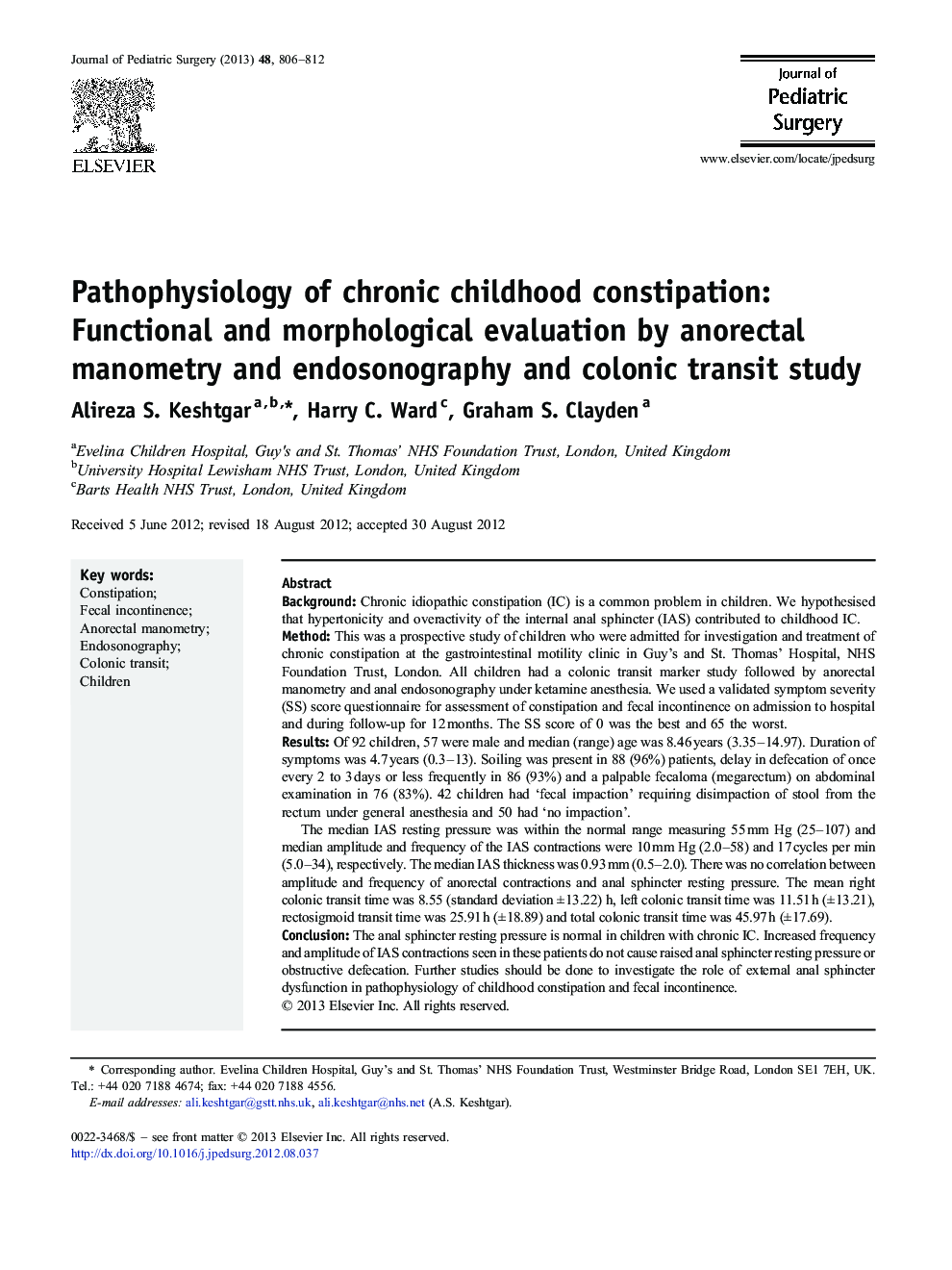| Article ID | Journal | Published Year | Pages | File Type |
|---|---|---|---|---|
| 6217676 | Journal of Pediatric Surgery | 2013 | 7 Pages |
BackgroundChronic idiopathic constipation (IC) is a common problem in children. We hypothesised that hypertonicity and overactivity of the internal anal sphincter (IAS) contributed to childhood IC.MethodThis was a prospective study of children who were admitted for investigation and treatment of chronic constipation at the gastrointestinal motility clinic in Guy's and St. Thomas' Hospital, NHS Foundation Trust, London. All children had a colonic transit marker study followed by anorectal manometry and anal endosonography under ketamine anesthesia. We used a validated symptom severity (SS) score questionnaire for assessment of constipation and fecal incontinence on admission to hospital and during follow-up for 12 months. The SS score of 0 was the best and 65 the worst.ResultsOf 92 children, 57 were male and median (range) age was 8.46 years (3.35-14.97). Duration of symptoms was 4.7 years (0.3-13). Soiling was present in 88 (96%) patients, delay in defecation of once every 2 to 3 days or less frequently in 86 (93%) and a palpable fecaloma (megarectum) on abdominal examination in 76 (83%). 42 children had 'fecal impaction' requiring disimpaction of stool from the rectum under general anesthesia and 50 had 'no impaction'.The median IAS resting pressure was within the normal range measuring 55 mm Hg (25-107) and median amplitude and frequency of the IAS contractions were 10 mm Hg (2.0-58) and 17 cycles per min (5.0-34), respectively. The median IAS thickness was 0.93 mm (0.5-2.0). There was no correlation between amplitude and frequency of anorectal contractions and anal sphincter resting pressure. The mean right colonic transit time was 8.55 (standard deviation ± 13.22) h, left colonic transit time was 11.51 h (± 13.21), rectosigmoid transit time was 25.91 h (± 18.89) and total colonic transit time was 45.97 h (± 17.69).ConclusionThe anal sphincter resting pressure is normal in children with chronic IC. Increased frequency and amplitude of IAS contractions seen in these patients do not cause raised anal sphincter resting pressure or obstructive defecation. Further studies should be done to investigate the role of external anal sphincter dysfunction in pathophysiology of childhood constipation and fecal incontinence.
